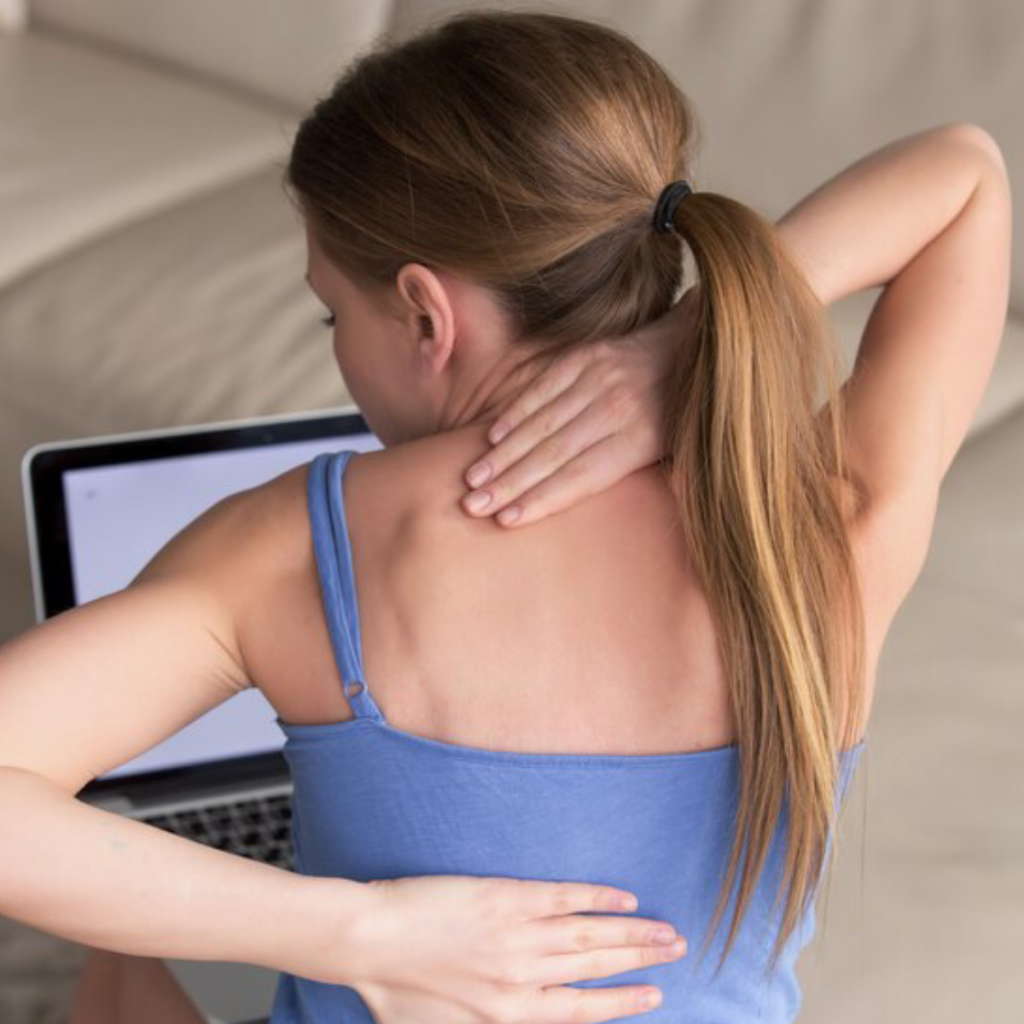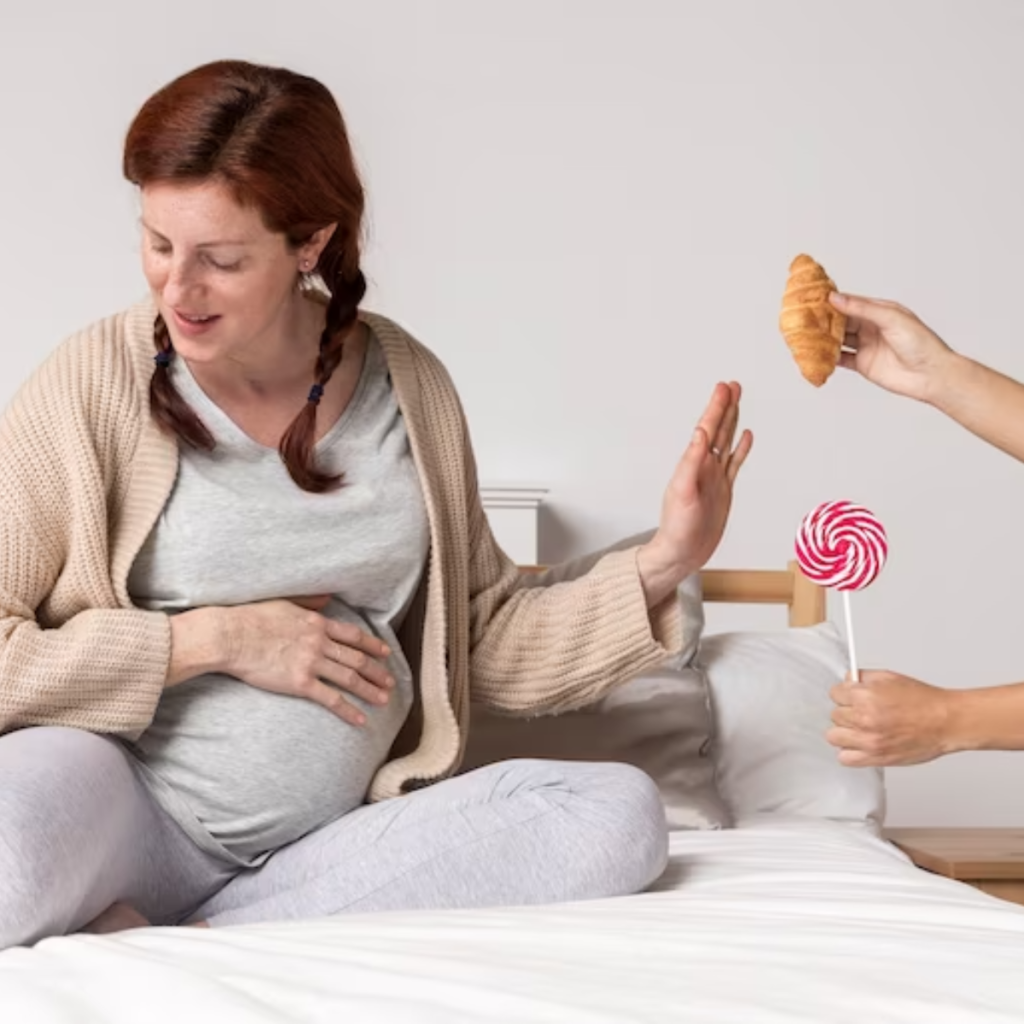Discover the crucial role hormones play in postpartum back pain and gain a deeper understanding of how these hormonal changes impact your body.
Understanding the Role of Hormones in Postpartum Back Pain
Oh, postpartum back pain, the oh-so-glamorous side effect of bringing new life into the world. As if sleep deprivation and diaper disasters weren’t enough, now your once pain-free back feels like it’s gone through a wrestling match with a sumo wrestler. But fear not, my fellow parents, for I am here to shed some light on the mysterious role hormones play in this back agony!

The Science Behind Postpartum Back Pain
Let’s start by diving deep into the labyrinth of the spine. You know, that flexible column of bones that keeps us upright and allows us to show off our fancy dance moves. The spine is a complex structure made up of individual vertebrae and cushioned by intervertebral discs. When these discs decide to act up, they can squeeze nerves and cause all sorts of discomfort.
But what exactly happens to the spine during pregnancy and postpartum that leads to back pain? Well, it’s like a magical transformation from a sprightly slinky to a cranky accordion. These changes can put extra pressure on those poor intervertebral discs, leading to back pain that’s more persistent than a toddler’s refusal to eat their vegetables.
But wait, there’s more to this pain puzzle. The hormonal rollercoaster of pregnancy and postpartum wreaks havoc on your body, making those discs even more vulnerable to misbehavior.
Hormonal Changes During Pregnancy
Our bodies are a wondrous symphony of hormones, and pregnancy turns up the volume on this hormonal playlist. One hormone in particular that takes center stage during pregnancy is relaxin. Ah, relaxin, the hormone of overstretched dreams and hopeless back support.
Relaxin, my dear readers, does exactly what its name suggests. It relaxes the ligaments and joints in your pelvis, allowing for a smoother trip down the birth canal. But unfortunately, this relaxation doesn’t stop at the pelvis. It can spread its laid-back vibes to the entire spine, making it less stable than a Jenga tower after a few rounds of tequila shots.
Now, imagine your spine as a support beam holding up a skyscraper. If that support beam suddenly turns into a wiggly noodle, you can bet your bottom dollar that the skyscraper won’t be standing tall and proud. The same goes for your spine when it comes to relaxin-induced back pain. It’s like your vertebrae are having a wild disco party without your permission.
But let’s not forget about the other hormones that join in on the postpartum party. Estrogen, progesterone, and cortisol all play their part in this symphony of discomfort. Estrogen, for example, increases blood flow to the muscles and ligaments, which can lead to inflammation and pain. Progesterone, on the other hand, relaxes smooth muscles, including those in the back, which can contribute to muscle weakness and instability. And cortisol, oh dear cortisol, the stress hormone that loves to make an appearance during those sleepless nights with a newborn, can increase muscle tension and exacerbate existing back pain.
So, as you can see, the hormonal changes during pregnancy and postpartum create the perfect storm for back pain. The combination of relaxin-induced instability and the effects of estrogen, progesterone, and cortisol can leave your spine feeling like a fragile tightrope walker trying to navigate a hurricane.
But fear not, dear readers, for there are ways to manage and alleviate postpartum back pain. From gentle exercises and stretches to ergonomic adjustments in your daily activities, there are strategies that can help you find relief and regain your dance floor prowess. So, don’t let postpartum back pain steal your groove. Take charge, seek support, and boogie on!
The Role of Relaxin in Postpartum Back Pain
So, what’s the deal with this relaxin character? Let’s delve into the details, shall we?
What is Relaxin?
Relaxin is a hormone produced by our ovaries during pregnancy. It’s like Mother Nature’s way of preparing our bodies for the miracle of childbirth. Aww, thanks, Mother Nature, but couldn’t you have thrown in a few extra lumbar cushions while you were at it?
During pregnancy, relaxin levels rise significantly to help soften and relax the ligaments and joints in the pelvic area. This allows the pelvis to expand and accommodate the growing baby, making childbirth possible. But relaxin doesn’t stop there. It also affects other parts of the body, including the spine.
Now, let’s talk about the spine, shall we? Our spine is made up of a series of bones called vertebrae, which are connected by ligaments and cushioned by intervertebral discs. These discs act as shock absorbers, allowing for flexibility and movement. However, during pregnancy, relaxin can cause these ligaments and discs to become more pliable and loose.
How Relaxin Contributes to Back Pain
Here’s the bitter truth, my friends. While relaxin does a great job at loosening things up for your baby’s grand entrance, it can also loosen up the ligaments and joints in your spine. This looseness can lead to instability and increase the likelihood of those mischievous intervertebral discs doing a little nerve-squeezing dance.
Imagine your spine as a well-balanced structure, with each vertebra and disc working together harmoniously. But when relaxin comes into play, it’s like throwing a wrench into the system. The increased flexibility and looseness in the ligaments and discs can disrupt the delicate balance, leading to strain and discomfort in the back.
Oh, and let’s not forget about the postpartum period. As your body adjusts to a non-pregnant state, relaxin levels drop, leaving your spine saying, “Wait, where did all the support go?” It’s like finding out your favorite bakery suddenly stopped making doughnuts. Heartbreaking, I tell you!
During this postpartum phase, the ligaments and joints that were once relaxed and loose start to tighten up again. This tightening process can cause additional discomfort and pain in the back, as the spine tries to readjust to its pre-pregnancy state.
But fear not, dear mothers! While relaxin may contribute to postpartum back pain, there are ways to manage and alleviate the discomfort. Gentle exercises, such as pelvic tilts and gentle stretches, can help strengthen the muscles around the spine and provide support. Additionally, maintaining good posture and using supportive pillows while sitting or breastfeeding can also help reduce strain on the back.
So, the next time you feel that postpartum back pain creeping in, remember that relaxin played its part in preparing your body for the amazing journey of motherhood. And while it may have caused some temporary discomfort, the joy and love that come with being a mother make it all worth it.
The Impact of Estrogen and Progesterone on Postpartum Back Pain
While relaxin steals the spotlight in the hormone theater, estrogen and progesterone also play their part in this back pain drama. Let’s give these unsung heroes the recognition they deserve!
Understanding Estrogen and Progesterone
Estrogen and progesterone, the dynamic duo of pregnancy hormones, work together to create a cozy environment for that precious bundle of joy. They make sure your body is primed for all the changes that come with growing a tiny human inside you.
Estrogen, often referred to as the “queen” of hormones, is responsible for a multitude of functions in the body. It helps regulate the menstrual cycle, promotes bone health, and even affects mood and cognitive function. During pregnancy, estrogen levels skyrocket, reaching their peak in the third trimester.
Progesterone, on the other hand, is like the calm and collected “king” of hormones. It helps maintain the uterine lining, preparing it for implantation and supporting the growing fetus. Progesterone also plays a role in regulating blood sugar levels and promoting relaxation.
How These Hormones Influence Back Pain
But alas, these hormones come with a price tag, and that price is back pain. Estrogen and progesterone can affect the elasticity of your ligaments, making them more prone to sprains and strains. It’s like your body is playing a delightful game of “Twister” with itself, and your spine ends up being the one twisting and turning the most.
As if that weren’t enough, estrogen also has a knack for reducing blood flow to the muscles in your back. Imagine trying to stay calm and collected while your muscles are screaming, “Where’s the oxygen, people?” It’s like a workout without the cute workout clothes or the satisfying workout high.
Additionally, progesterone’s role in promoting relaxation can lead to muscle weakness and instability, further contributing to postpartum back pain. The combination of increased ligament laxity and weakened muscles creates the perfect storm for discomfort and limited mobility.
Furthermore, these hormones can also impact the alignment of your spine. As your ligaments become more relaxed, they may fail to provide the necessary support to maintain proper spinal alignment. This can result in increased pressure on certain areas of the spine, leading to localized pain and discomfort.
It’s important to note that the effects of estrogen and progesterone on back pain can vary from person to person. Some individuals may experience minimal discomfort, while others may find themselves struggling with severe and persistent pain. Factors such as genetics, pre-existing musculoskeletal conditions, and overall physical fitness can all influence the degree to which these hormones impact postpartum back pain.
In conclusion, while estrogen and progesterone are essential for a healthy pregnancy, they can also contribute to postpartum back pain. Understanding the influence of these hormones on ligament laxity, muscle blood flow, muscle weakness, and spinal alignment can help individuals better manage and alleviate their discomfort. So, let’s give a round of applause to estrogen and progesterone for their role in the beautiful chaos that is motherhood!
Other Factors Contributing to Postpartum Back Pain
Now that we’ve covered the hormonal heavyweights, it’s time to dig into some other factors that can contribute to postpartum back pain. Brace yourselves, folks!
Physical Changes During Pregnancy
During pregnancy, your body goes through monumental changes. It’s like a massive renovation project that leaves no corner untouched. These physical changes, such as weight gain, shifts in your center of gravity, and weakened abdominal muscles, can all put strain on your back and result in a not-so-welcome pain party.

The Influence of Breastfeeding
Oh, breastfeeding, the noble act of nourishing your little one with liquid gold. But for some, it can come with a side dish of back pain. Holding a squirmy baby for long periods, hunching over to achieve the perfect latch, and standing in awkward positions to nurse can all take a toll on your already tender back.
Managing and Treating Postpartum Back Pain
Now that you’re armed with a treasure trove of knowledge about the hormonal havoc and other influences behind postpartum back pain, it’s time to explore some strategies to tame the beast.
Non-Medical Interventions for Back Pain
First, let’s talk about non-medical interventions. These include exercises to strengthen your core and back muscles, practicing good posture, using supportive pillows, and indulging in some well-deserved self-care. Remember, self-care isn’t selfish; it’s a necessary survival tactic in the crazy world of parenting!
Medical Treatments and Therapies
If the pain persists or becomes unbearable, don’t hesitate to seek medical advice. Your healthcare provider can guide you through different treatment options, such as physical therapy, pain medications, or even a soothing massage. Trust me, you deserve all the pampering and relief you can get!
So there you have it, dear parents. The tale of hormones and their devilish dance with postpartum back pain. While it may feel like an uphill battle, remember that you are a superhero, capable of conquering mountains of nappies and waves of pain. Take care of yourself, listen to your body, and don’t be afraid to seek support. After all, behind every superhero, there’s a village of amazing parents just like you!



